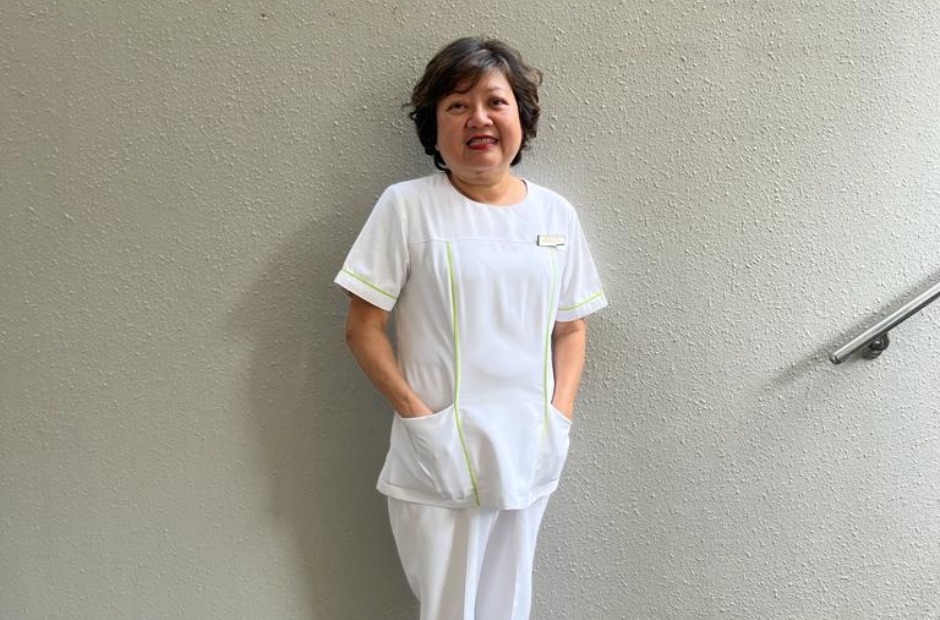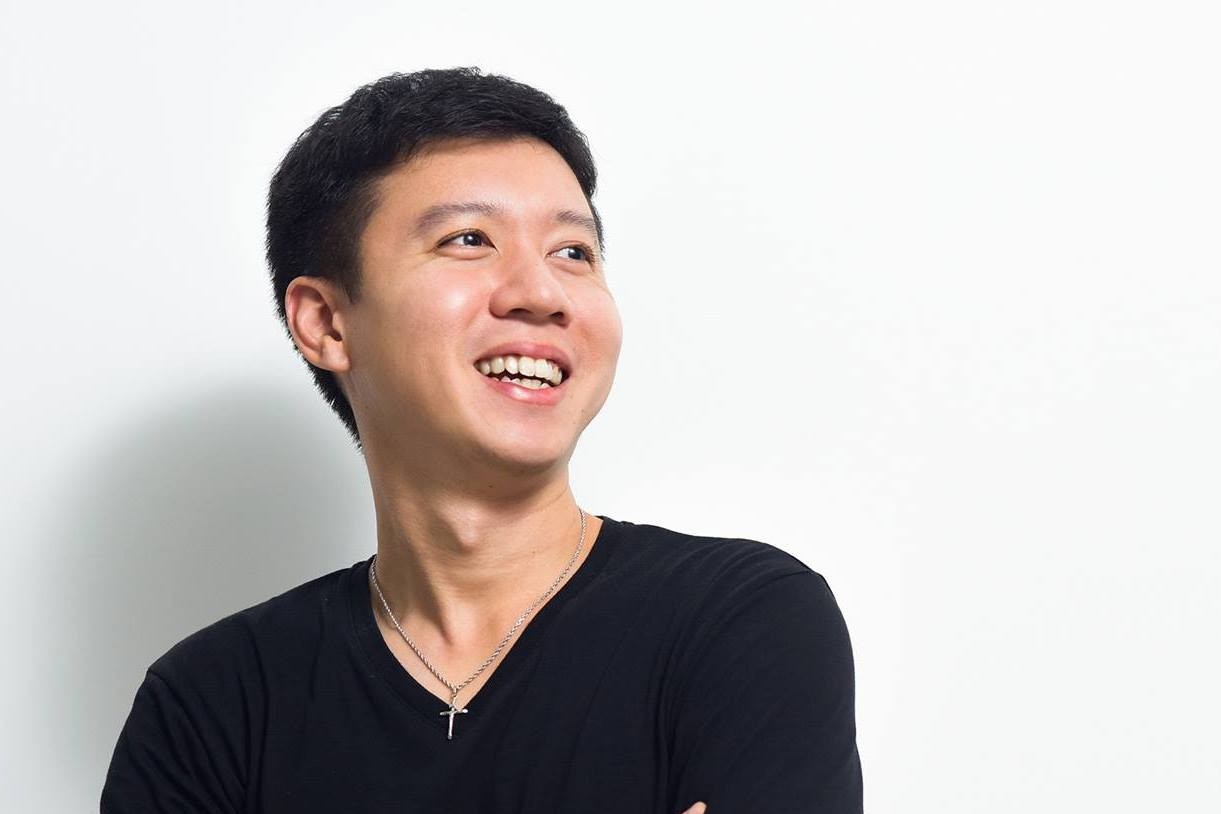While most of her peers are contemplating retirement, 57-year-old Felicity Cheng has gone back to school to pick up a new skill.
After 35 years in the oil and gas sector, Ms Cheng was laid off when the COVID-19 pandemic struck, leaving her in a state of uncertainty.
But when one door closes, another opens; it turned out to be an opportunity for her to revisit her childhood aspiration – to be a nurse.
A timely advertisement came up one night on TV about an engineer who made a mid-career switch to nursing. That ignited a spark in her, which led her to apply for Ngee Ann Polytechnic’s Career Conversion Programme for Registered Nurses (Diploma).
What crossed her mind about embarking on a vastly different career in her 50s? Did she worry about going back to school after so long, or catching up with younger classmates? She was unflustered, she reflects. “I had time on my hands and I was restless. Plus, I don’t have to worry about raising my two daughters anymore,” she says of her children who are working adults.
From oil and gas to nursing? Bring it on
As a teenager, Ms Cheng felt that nursing would make a meaningful vocation but her parents advised that a field like engineering could offer more prospects.
So she settled on pursuing an engineering diploma and a career in the oil and gas industry, where she rose through the ranks, eventually leading a team drafting proposals for resource explorations around the Asia-Pacific region.
Decades on, when she found herself applying for the nursing diploma, she focused on revisiting a dream; she didn’t imagine that on her first day back at school, all the other mid-career switchers in her class would be nowhere near her age!
Some of whom were as young as her daughters in their twenties, she recalls. She gravitated to the older ones in the cohort, till everyone warmed up.

Keeping up with her younger course mates
Ms Cheng soon observed that different generations had complementary strengths; the older students were more methodical and would thoroughly pore over all the curriculum content, while the younger students were savvier with technology and resourceful. “We are able to relate better in terms of organisation; we are very vocal and classmates and lecturers find it easier to communicate with us. We ask a lot of questions,” she shares.
As the nursing course was compressed into two years compared to the regular diploma course of three years, Ms Cheng was initially concerned that they were not getting the full learning experience. “We were all going to serve as nurses and were worried whether there is sufficient knowledge to proceed with our career plan. The lecturers gave us the assurance that whatever we were learning was equivalent to a full-time diploma, but everything is more intense.”
True to her lecturers’ words, the fast-paced nature of the course led to “anger, frustration and sometimes, tears when we couldn’t cope”, Ms Cheng shares.
When it comes to practical nursing skills, she admits that older students may not be as coordinated in their movements and sometimes require extra help from the lecturers.
Thankfully, all her classmates and lecturers looked out for one another and were encouraging. Recounting how “everyone was working hard together”, Ms Cheng shares how her classmates would drop notes of encouragement to one another while revising at night. In class, they also formed study groups to share their notes. The lecturers would patiently revisit topics and clarify any doubts they had.

Pace aside, going back to school was also a stark contrast to her previous life, where she was accustomed to managing a team and “having people do things for me”. “As a student now, I must learn for myself. I cannot get anyone else to learn for me.”
Her prior work experience came in handy when managing different opinions and the occasional conflict among course mates across the wide age group. “I could apply my leadership skills and bring everyone together,” she says.
Embracing new beginnings with support
When pursuing higher education at any age, having support is crucial.
Ms Cheng is thankful for the support she received from her family. “My daughters knew that it was my dream, and they were resourceful in sending me links to help in my research on the programmes available and preparing for my application,” she says.
Ms Cheng’s mother, who discouraged her to take up nursing as a career in her younger days, was initially sceptical of her daughter’s decision to return to school. Why not just relax and slow down like others your age? she had asked. But she saw how determined Ms Cheng was and started to egg her on from module to module.
“Once you embark on this path, you must be very clear in your decision. There is no turning back,” Ms Cheng says.
“Make sure that you have ample support. While the financial considerations are important, you must also have emotional and moral support from your family, and a little self-pressure to persevere through the difficulties.” Two years on, Ms Cheng has completed her course and will be starting her nursing career at an elder care facility, a place where she feels that she can make the biggest impact as she can relate better to the needs of older adults.
“Make sure that you have ample support. While the financial considerations are important, you must also have emotional and moral support from your family, and a little self-pressure to persevere through the difficulties.”





.jpg)
